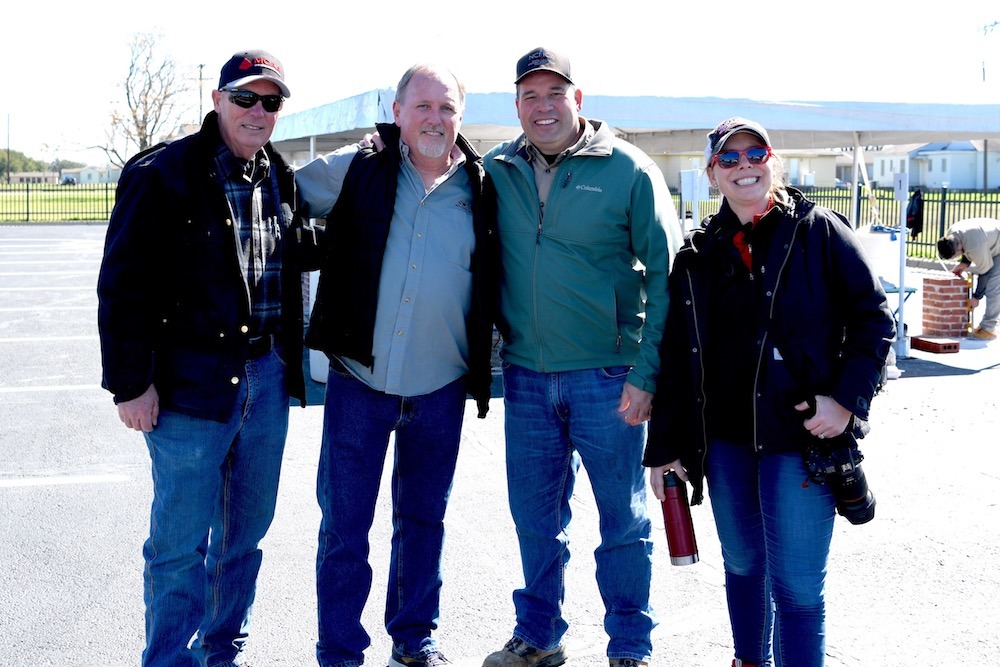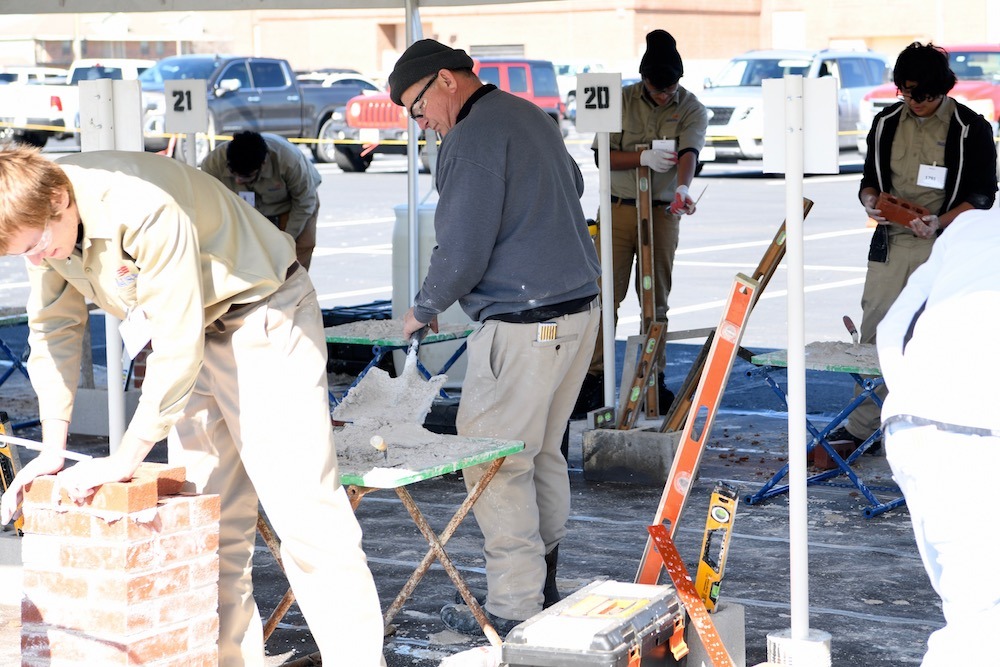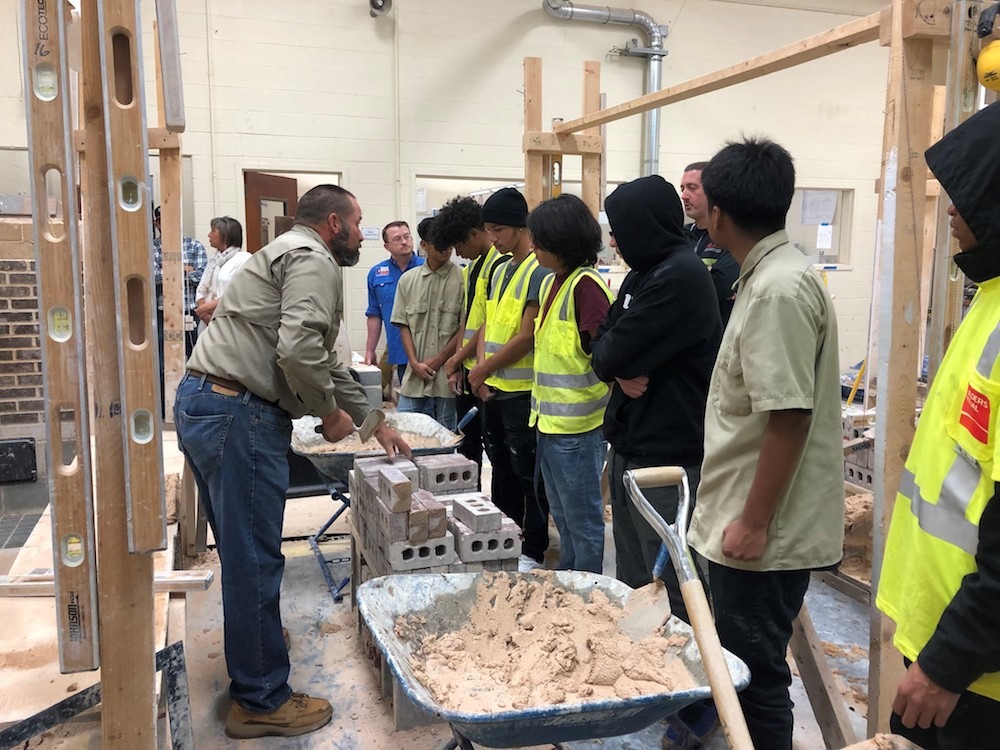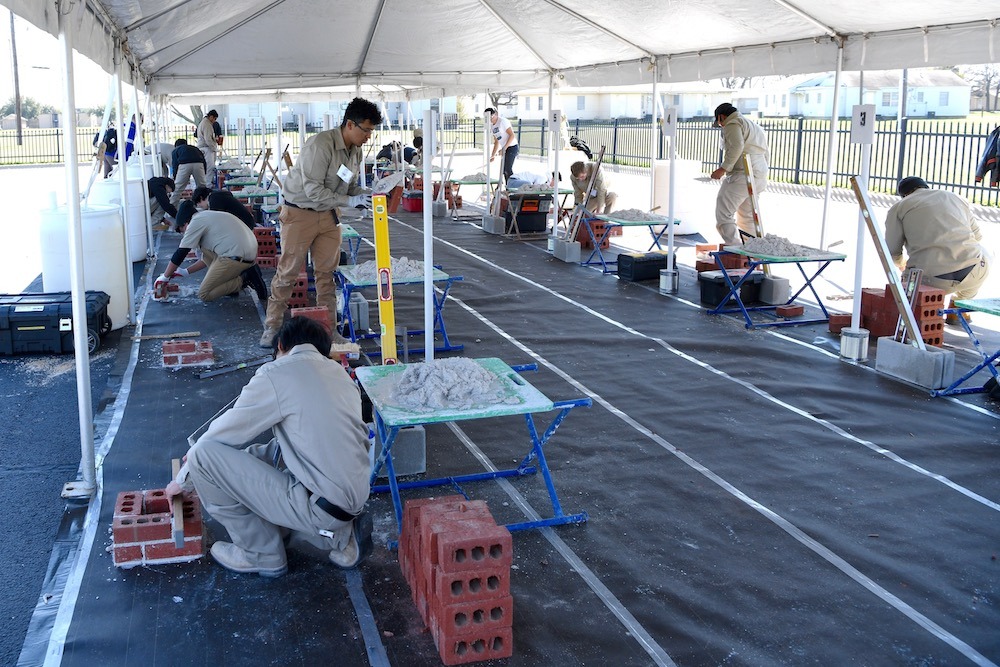Words: Liz Graves
Photos: Mel Smith
A few weeks back, the Texas Masonry Council (TMC) held its winter meeting, which focused on nothing but workforce development. Texas, like states around the country, is struggling with finding enough skilled tradesmen and tradeswomen.
Over the years, in Texas, we’ve gotten lax on recruiting and training the next generation of masons. For years, our school system almost completely took trades away in high schools, while encouraging every student to go to college. Now there seems to be a generational gap in our workforce and we’re experiencing the consequences for not training the next generation.
We have often thrown unskilled workers onto the wall because we just needed more manpower. As a consequence, we’ve seen inconsistency, poor craftsmanship, and lack of production. Talking to contractors, many seem to be fighting over some of the same folks across the state. Fortunately, we are now seeing vocational programs (now primarily known as CTE programs- Career and Technical Education) come back to many schools, and there is a real opportunity to get masonry into many of these programs.

During the MCAA Committee Meetings at the World of Concrete, I would estimate that at least 80% of the discussions touched on Workforce Development at least in part. The trend most people are seeing is that the trades are coming back across the country, but we must fight for masonry to be one of them. Contractors have long talked about the problem of finding enough qualified masons. But, until recently, most of us in Texas have been just talking about it or trying to go at this issue alone.
But now Texas has seen the light, and by light, I mean the example that North Carolina Mason Contractors Association (NCMCA) has been set for all of us. If you’ve been following Masonry Magazine for a few years, you probably already know the success NCMCA has had. Their association took the leap of faith to hire Ryan Shaver full-time to focus solely on workforce development.
Day in and day out he’s in high schools (and some community colleges) throughout the state of North Carolina, helping with programs that have masonry in their curriculum and working to put programs in schools that don’t already have masonry. He’s worked with the state to get a registered pre-apprenticeship program set up.
What exactly is a pre-apprenticeship program?
These pre-apprenticeship programs are set up in schools using the NCCER masonry curriculum. When a student completes this, they can earn a certificate of completion. But, more importantly, when they are registered in the pre-apprenticeship program, they are allowed to work on a jobsite with mason contractors that are members of NCMCA. This gives them the opportunity to take the skills they learn in the classroom and masonry shop and put them into practice in a real-life setting. They experience how hard the work is, but more importantly, they see a paycheck and satisfaction of seeing a job well done.
The first summer Ryan Shaver started the pre-apprenticeship program, he placed 25 students with mason contractors during the summer. Last summer, he increased the number of participants to 71. Many of these students build a relationship that leads them directly from the pre-apprenticeship into a full-time apprenticeship with the contractor they’re working with. The hours they logged from their pre-apprenticeship count towards their apprenticeship, sweetening the deal for both the apprentice and the hiring company. Did we mention that parents love these programs too?
If reading about how successful this program gets you excited, then you are not alone. Here in Texas, it inspired us. So much so that the TMC formed a workforce development committee. We quickly realized we needed to go directly to the source. Many of our Workforce Development Committee members took a field trip to North Carolina, and Ryan showed us how he works his magic.

We were able to go into some schools that are already set up and even one that he’s working on getting a program set up in. It was great to get to talk to the students and teachers about how it works and feel the enthusiasm of a great partnership. It’s a win-win-win.
- Win #1: The schools get credit for placing these students into successful, good-paying jobs even before they’re graduated. Schools like that the NCMCA is supporting its programs and not just a single company.
- Win #2: The mason contractors have a great supply of new apprentices to start working.
- Win #3: It’s a success for contractors and suppliers alike because we can only push for increased market share for masonry if we’ve got the manpower to install it.
Since this trip, the TMC Workforce Development Committee has been working to firm up a plan that would put a program similar to NCMCA’s in place. During our TMC winter meeting, this was the focus. We had a two-day event that brought in a representative from NCCER to talk about the masonry curriculum that is being widely used and accepted throughout the country.
We also were fortunate to have Ryan come down to us from North Carolina to talk more about their program and answer more questions. Between Ryan and Lynn Nash, their General Manager, we are so thankful for the information and knowledge shared between our state associations.
We wrapped up our meeting in conjunction with one of the Skills USA regional masonry competitions, where we helped with 22 students competing for spots to advance to the state competition in Corpus Christi in April. Watching the enthusiasm and different skill levels of these students were motivational to all of us that attended. Be sure to find out when your state’s Skills USA competition is and volunteer to help and, if you’re a contractor, sign up to judge. These kids are our future, and they love hearing encouragement from you.
From our winter meeting, the TMC Workforce Development Committee has developed an initial plan, which has now been approved by the TMC board. The key component starting out will be hiring a full-time employee to focus solely on Workforce Development. With a state the size of Texas, the committee realizes that this will likely need to expand to increased staff in order to cover the state adequately. This will come with time but, like most things, it’s better to start somewhere and grow the program strategically. Another key part of this program was to adopt NCCER’s masonry curriculum as the standard for TMC. As school programs are started, this curriculum will be the recommendation made by the TMC.

For this workforce development plan to be successful, we must see contractor involvement. A program like this will only work with commitment and participation from masonry contractors. This is part of what makes NCMCA’s program work so well. Ryan has developed good relationships with the masonry contractors and they are committed to hiring these students. If contractors do not commit to hiring students, what will the incentive be for schools to start and/or continue masonry programs? Therefore, contractor participation is a must.
The TMC staff and board are working on finalizing the plan and allocating funds to this program to ensure its success. Hiring another staff member and running a program like this will cost money. Where will these funds come from? This funding can come from multiple potential sources including dues, allocated special donations, check-off programs, grants, and funds from specific fundraisers such as golf tournaments, conventions, and auctions held at either the state or local level. Donations won’t all been monetary- they can also be time, equipment, tools, and materials.
All of this is great, but we don’t want to discount the amazing work that’s already been done and is currently in place. We’ve got a few schools that already have successful masonry programs in place here in Texas, one of them being in Grand Prairie. Bud Johnson, the instructor, is a long-time supporter of the masonry industry and has been instrumental in starting the ball rolling. The TMC plans to encourage, support, and publicize programs like Bud has going to show it can be a success. TMC also plans to continue to make contacts with high schools that have vocational programs in place to encourage masonry as a stand-alone course.
As you can see, Texas has a lot to look forward to and a lot still to do. We are excited about this movement to spread across the state. The job search will soon start so please feel free to spread the word as TMC is going to be looking for the best fit for this unique position.
What are you doing at your own company or at your local or state level associations to promote workforce development? We would love to hear from you. We know there are many other successful and developing workforce development programs out there and Masonry Magazine will be highlighting a few of these in the future.
Remember, together we’re stronger!
For questions or comments, please contact Liz Graves at lizg@specrents.com
